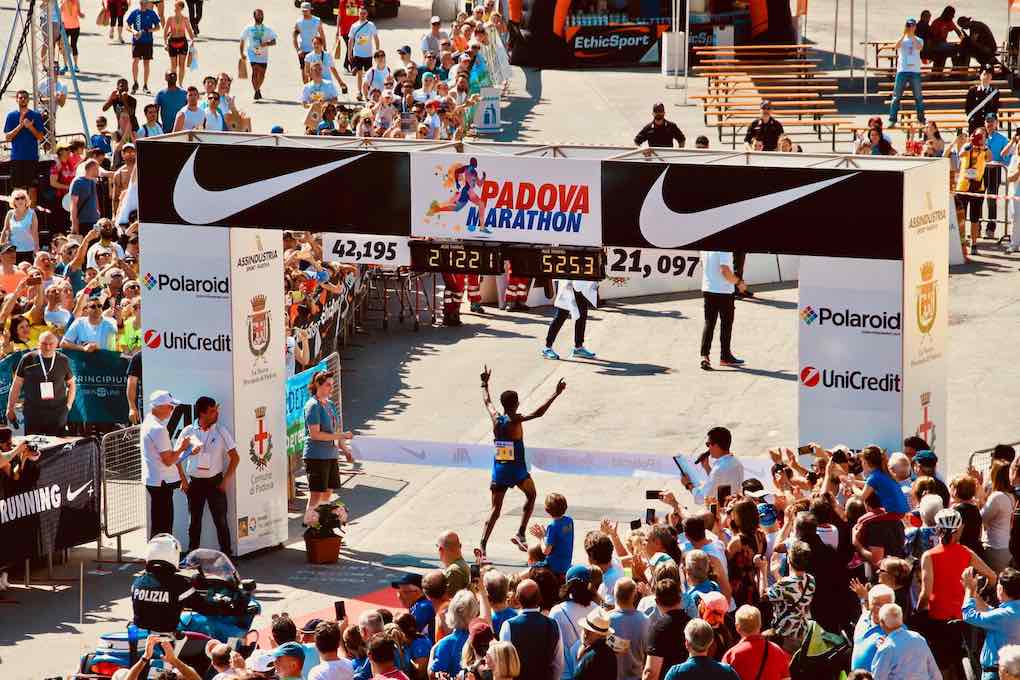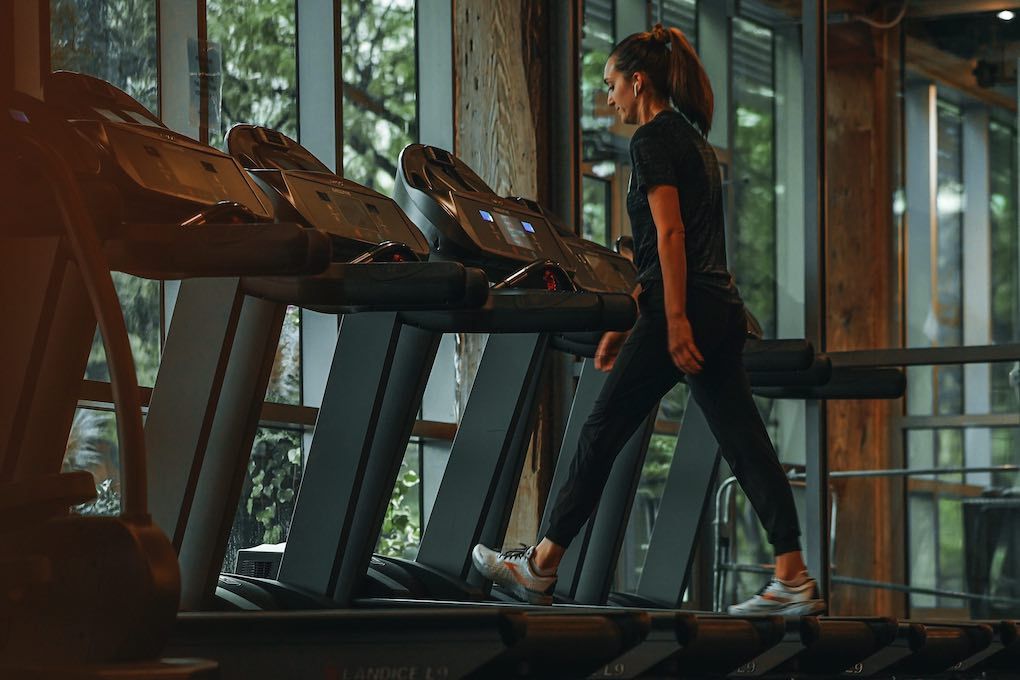Welcome to the world of running, where the thrill of pushing your physical limits and achieving new goals awaits you. If you're wondering how long it takes to run a 5k, you're not alone. Knowing the average 5k times can help you set realistic goals and track your progress, whether you're a beginner or a seasoned runner. So, let's dive in and discover what it takes to conquer the 5k distance!
Key Takeaways:
- The average time for a 5k race is around 30 minutes for intermediate runners, but it can vary depending on age, gender, and fitness level.
- A good time for a 5k is a reasonable fitness goal and can be achieved with proper training and consistent effort.
- Elite and professional runners can finish a 5k in under 15 minutes, but terrain, weather, and injuries can also affect race times.
What Is a 5k Race?
A 5k race, also known as a 5-kilometer race, is one of the most popular race distances. It covers a distance of 5 kilometers or 3.1 miles and is a common choice for novice and experienced runners. On race day, participants experience excitement and nerves as they prepare to push their limits and achieve their personal best.
Stay consistent with your training and focus on speed and endurance to improve your 5k time.
How Long Does It Take to Run a 5k?
There is no straight answer; it depends. In this section, we will dig into the details of 5k times and explore the factors affecting an individual's finishing time.
What Is the Average Time for a 5k?
The average time for a 5k varies depending on fitness level and age. A 5k is typically completed by intermediate runners in approximately 30 to 40 minutes, with an average pace of 9 to 12 minutes per mile.
To improve your 5k time, it is recommended to train regularly and focus on building strength and endurance. For an added boost in overall performance, consider incorporating interval training to work on increasing your average pace.
What Is a Good Time for a 5k?
A good time for a 5k depends on individual fitness goals and running experience. A reasonable 5k time for beginners might be around 30-35 minutes, while seasoned runners may aim for sub-20 minutes. Tailor your target to your fitness level and make it an achievable goal to stay motivated. Progress is personal, and setting realistic targets is vital to success.
In 2019, Eliud Kipchoge set an incredible record, completing a marathon in less than two hours, showcasing the remarkable progress in long-distance running.
What Is a Fast Time for a 5k?
Elite and professional runners often achieve the fastest 5k times, with men running under 13 minutes and women around 14 minutes. The consistent training, physical fitness, and exceptional running efficiency allow them to achieve these remarkable times.
What Factors Can Affect Your 5k Time?
When running a 5k, there isn't a one-size-fits-all answer to how long it takes. Many factors can influence your 5k time, from your age and gender to the terrain and weather conditions. Understanding these factors can help you better prepare and plan for your next 5k run.
1. Age and Gender
- Understand age group categories in 5k races to gauge competition and set realistic goals.
- Recognize the impact of age on performance and adjust training accordingly, especially for senior runners.
- Consider the differences in physical condition and performance factors between male and female runners.
For female runners, age can significantly affect performance. Tailoring training to accommodate age-related changes is crucial. Additionally, focusing on strength and flexibility can benefit all age groups.
2. Fitness Level
- Assess fitness levels: Evaluate current physical condition to determine the starting point.
- Set goals: For intermediate levels, aim to improve 5k timing by consistent training and endurance building.
- Advanced runner: Implement advanced training techniques such as interval workouts and tempo runs to enhance speed and stamina.
3. Terrain and Course Conditions
- Inspect the terrain and course conditions to identify inclines, declines, or uneven surfaces.
- Take note of the road race specifics, including gravel, pavement, or track sections.
- Consider the impact of each quarter mile on your pace and adjust your strategy accordingly.
Familiarize yourself with the race course to mentally prepare for navigating various terrain and course conditions.
4. Weather
- Check the weather forecast for race day to prepare for running in hot or cooler weather.
- Wear lightweight, breathable clothing in hot weather, and consider wearing a hat and sunglasses for sun protection.
- Hydrate adequately before, during, and after the race, especially in hot weather.
- In cooler weather, dress in layers you can easily remove as your body heats up during the race.
Remember, adapting to the weather conditions can significantly impact your performance on race day. Stay prepared and make adjustments accordingly.
How Can You Improve Your 5k Time?
The key to achieving a faster 5k time is consistent training, specific workouts, and proper nutrition. By following the tips listed below, you can reach your goal of running a faster 5k in no time.
#1 Train Regularly
- Create a structured training schedule, including various types of runs and rest days.
- Incorporate physical activities such as cross-training and strength workouts to enhance overall fitness.
- Gradually increase mileage and intensity to build endurance and speed.
- Focus on proper form and technique during runs to prevent injuries and improve efficiency.
Consistency is critical when following a training schedule. Remember to include rest days and listen to your body. Incorporating various physical activities can complement your running regimen and prevent burnout.
#2 Incorporate Speed Workouts
#3 Begin with a warm-up to prepare your body for the upcoming workout
#4 Execute interval training by alternating between high-intensity running speed and active recovery periods
#5 Integrate interval workouts into your training plan, gradually increasing the intensity and duration
#6 Focus on proper form and breathing techniques during each interval to maximize the workout's effectiveness
#7 Focus on Strength and Endurance
- Include strength training: Incorporate exercises like squats, lunges, and deadlifts to build muscle strength.
- Enhance endurance: Focus on cardio workouts such as running, swimming, or cycling to improve overall endurance.
- Care for connective tissues: Perform stretching, yoga, or Pilates to maintain flexibility and strengthen connective tissues.
#8 Proper Nutrition and Hydration
- Opt for proper nutrition with a balanced diet comprising lean protein, complex carbs, and healthy fats.
- Maintain hydration by drinking adequate water, especially before and after the race.
- Consume a light, balanced meal rich in carbs and lean protein a few hours before the race.
- Avoid overeating or consuming heavy meals close to the race to prevent discomfort.
What Are Some Tips for Running a Faster 5k?
Running a 5k is a great way to challenge yourself physically and mentally. Whether you are a seasoned runner or just starting, improving your 5k time is a common goal. By implementing the strategies mentioned below and giving your best effort, you can achieve your personal record and reach your running goals.
1. Start Strong, Finish Stronger
- Warm-up: Begin with a light jog or brisk walk to prepare your muscles and get in the race mindset.
- Focus: Concentrate on maintaining a steady pace during the initial phase, avoiding the temptation to sprint.
- Midpoint Surge: After reaching the midpoint, gradually increase your speed to pick up the pace and finish strong.
- Strong Finish: In the final stretch, give it your all, utilizing the energy reserved for finishing strong.
2. Pace Yourself
- Start at a comfortable pace to avoid burning out early.
- Find your average pace and maintain it throughout the race.
- Conserve energy for a strong finish in the last stretch.
3. Use Proper Breathing Techniques
- Practice diaphragmatic breathing, inhaling deeply through your nose and exhaling fully through your mouth.
- Engage in rhythmic breathing, synchronizing your breath with your steps to maintain a steady pace.
- Focus on relaxed breathing, avoiding shallow, erratic breaths to conserve energy.
- To improve overall physical condition and lung capacity, utilize cross-training, such as an elliptical trainer.
During a 5k race, I applied these techniques and utilized an elliptical trainer for cross-training. This combination significantly improved my breathing and physical condition, considerably boosting my race performance.
4. Stay Mentally Focused
- Set clear goals to maintain mental focus during training and races.
- Practice positive self-talk and visualization techniques to enhance mental focus.
- Consult a personal trainer to develop mental strategies and improve overall performance.
In 1970, the first-ever official 5k race was organized by the San Jose Track Club, solidifying the distance as a popular choice for amateur and professional runners.
What Are Some Common Misconceptions About Running a 5k?
Some common misconceptions about running a 5k include believing it's only for experienced runners, assuming it requires intense training, and thinking it's impossible for novices. Even beginner runners can prepare effectively with the right couch to a 5k guide. The big question is not whether you can do it but how to start and progress at your own pace.
How long does it typically take to run a 5k?
On average, a 5K race takes 26 to 36 minutes to complete. However, this time can vary depending on your fitness level, training plan, and physical condition.
What is a reasonable 5k time for beginner runners?
A reasonable 5k time for beginner runners is around 30 minutes. It can be achieved by following an 8-week training plan, such as the popular Couch to 5k program.
Is it necessary to have a specific pair of shoes for running a 5k?
While having a specific pair of shoes for running a 5k is unnecessary, it is recommended to wear proper running shoes to reduce the risk of injury. Make sure to choose a pair that is comfortable and supportive for your feet.
What are some popular options for training plans for a 5k?
Some popular options for training plans for a 5k include the Couch to 5k program, as well as intermediate and advanced running workouts. It is essential to find a plan that suits your level of fitness and time goal.
How many days of rest should I take during my 5k training program?
The number of rest days needed during a 5k training program can vary depending on your fitness level and the intensity of your training runs. However, it is generally recommended to rest every other day.
How necessary is proper training and preparation for a 5k race?
Proper training and preparation for a 5k race is crucial to avoid injury and achieve your desired race time. Increasing your miles in training gradually, incorporating cross-training and rest days, and listening to your body to build injury resistance and improve your overall running journey is recommended.



